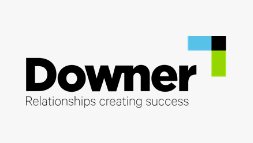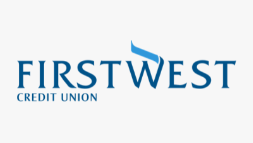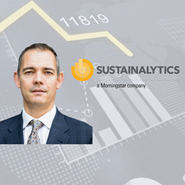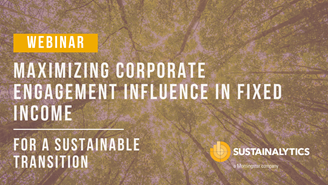Governance in Brief – January 13, 2022
Alphabet increases executive remuneration Alphabet is to raise the base salaries of four of its top executives, soon after informing employees that there would not be a company-wide salary adjustment to match rising inflation. Four top executives, CFO Ruth Porat, SVP Prabhakar Raghavan, Chief Business Officer Philipp Schindler, and Chief Legal Officer Kent Walker, will have their annual salaries increased from USD 650,000 to USD 1 million.
How a Leading Infrastructure and Facilities Conglomerate Successfully Linked its Sustainability Ambitions to its Financing
In pursuing a sustainability-linked loan (SLL) and obtaining a second-party opinion on the KPIs tied to it, Downer secured credibility for its sustainability commitments, while also achieving its financing objectives.
How a Credit Union Analyzed Its ESG Gaps and Set Its Sights on Leading in ESG
The insights and data gathered from Sustainalytics’ ESG Performance Analytics reinforced First West Credit Union’s values-based approach to business and spurred the company to strive for additional positive impacts within its operations, for its members, and for its community teams.
5 Sustainability Themes to Expect in 2022
As we enter 2022, it struck me that VUCA--a concept that originated in the mid-1980s at the U.S. Army War College to describe the volatility, uncertainty, complexity, and ambiguity of the world after the Cold War—is still a useful framework to think of where we are now.
Governance in Brief – January 06, 2022
Vivendi moves towards full control of Lagardère Vivendi has announced that it is acquiring activist investor Amber Capital’s 17.5% stake in French media and retail group Lagardère, at a price of EUR 24.10 per share. The transaction will result in Vivendi owning 45.1% of Lagardère, triggering a full bid for the company due to the 30% mandatory bid threshold having been breached. Accordingly, Vivendi plans to make an offer of EUR 24.10 per share for Lagardère’s remaining stake by February 2022. The deal marks the latest chapter in a multiyear dispute over Lagardère’s control and governance. Vivendi, today Lagardère’s largest shareholder, started building its stake in April 2020, as Lagardère’s managing partner Arnaud Lagardère clashed with Amber over the company’s governance structure. At the time, Lagardère was a French “partnership limited by shares,” which allowed Arnaud Lagardère to retain control despite only holding around 7% of capital. While Vivendi initially supported Arnaud Lagardère’s attempt to fend off a proxy contest from Amber at the 2020 AGM, it later joined Amber in requesting board representation. In April 2021, Arnaud Lagardère bowed to shareholder pressure by agreeing to convert Lagardère into a joint stock company.
Sustainalytics CEO Michael Jantzi on the Evolution of ESG and What's Ahead For Sustainable Investing
Michael Jantzi is one of the giants of sustainable investing. He is the founder and long-time CEO of Sustainalytics, which was recently sold to Morningstar, and where he now focuses on the big picture as managing director for ESG strategy.
Governance in Brief – December 16, 2021
Vivendi moves towards full control of Lagardère Vivendi has announced that it is acquiring activist investor Amber Capital’s 17.5% stake in French media and retail group Lagardère, at a price of EUR 24.10 per share. The transaction will result in Vivendi owning 45.1% of Lagardère, triggering a full bid for the company due to the 30% mandatory bid threshold having been breached. Accordingly, Vivendi plans to make an offer of EUR 24.10 per share for Lagardère’s remaining stake by February 2022. The deal marks the latest chapter in a multiyear dispute over Lagardère’s control and governance. Vivendi, today Lagardère’s largest shareholder, started building its stake in April 2020, as Lagardère’s managing partner Arnaud Lagardère clashed with Amber over the company’s governance structure. At the time, Lagardère was a French “partnership limited by shares,” which allowed Arnaud Lagardère to retain control despite only holding around 7% of capital. While Vivendi initially supported Arnaud Lagardère’s attempt to fend off a proxy contest from Amber at the 2020 AGM, it later joined Amber in requesting board representation. In April 2021, Arnaud Lagardère bowed to shareholder pressure by agreeing to convert Lagardère into a joint stock company.
Infographic | How Today’s Banks are Adopting ESG-Based Strategies to Become More Sustainable
Banks need comprehensive and credible environmental, social, and governance (ESG) strategies to participate in and benefit from the accelerating growth of sustainable finance. This infographic sheds light on some of the key sustainability-focused strategies banks are using and what they might look like in practice.
Governance in Brief – December 09, 2021
Didi to move listing from New York to Hong Kong Didi Global will delist its American depository shares (“ADSs”) from the NYSE and pursue a listing on the Main Board of the HKEX, less than six months after its USD 4.4 billion U.S. IPO in June 2021. Didi’s decision comes as Chinese authorities finalize a cybersecurity probe into the company amid Beijing’s increased scrutiny of foreign-listed Chinese companies. In July, the investigation had led to a 20% drop in the ride-hailing giant’s market value. This in turn prompted two class-action lawsuits from investors alleging that Didi had failed to disclose Chinese regulatory calls for it to delay its IPO until after the conclusion of the cybersecurity review. Didi indicated that it will hold a shareholder meeting to approve the move and arrange for its ADSs to be convertible into freely tradable company shares on another global exchange of ADS holders’ choosing. With the delisting, Didi joins a growing exodus of Chinese companies from U.S. exchanges. Last week, the SEC finalized rules allowing it to forcibly delist those foreign companies that have failed to comply with U.S. regulatory audits for three consecutive years.
For Investors with Ambitions to Lead on Climate Action Post COP26
In the weeks following COP26, investors in the UK and worldwide face a myriad of upcoming climate-related regulations heading towards the implementation phase. In addition, major global coalitions such as the Glasgow Financial Alliance for Net Zero have sprung up to attempt to accelerate decarbonization via targeted investment.
Financing the Future: An Interview on Banks’ Role in the Green Transition
Financing the Future: Conversations in Sustainable Finance is a Q&A series where we sit down with featured ESG experts from Sustainalytics, sharing their insights on how businesses are using finance to meet the challenges of our transition to a sustainable future. Read on to learn...
Governance in Brief – December 02, 2021
Activision Blizzard CEO considers departure Activision Blizzard CEO Bobby Kotick has reportedly signaled his potential resignation in case the company’s sexual harassment and cultural issues are not resolved with sufficient haste. Recently, around 1,330 employees petitioned Kotick to resign following media allegations that he had ignored and failed to disclose sexual harassment and gender discrimination complaints from female employees. Additionally, a group of shareholders has called for the CEO’s resignation, the retirement of the Chairman and the Lead Independent Director, and the nomination of a non-executive Activision Blizzard employee to the board. In response, the company announced that it had formed a fully independent “Workplace Responsibility Committee” tasked with overseeing the company’s progress on workplace culture improvement, adding that it “is working” on adding a “new, diverse” director. The controversy around Activision Blizzard emerged in July 2021, when the California Department of Fair Employment and Housing announced that a two-year investigation had revealed sexual harassment and discrimination practices at the company.
A Closer Look at Product Governance ESG Risk Management
In 68% of our engagements, product governance is a significant material ESG issue, but it is our experience that most companies underestimate the materiality of this risk to investors. For some industries, product governance represents on average more than 20% of ESG risk exposure, as identified within our ESG Risk Rating framework.
Sustainable Finance and Banks: Reduced Risk, Increased Opportunity
Banks will play a key role in the green transition and those that commit to sustainable banking may gain an advantage over competitors, among other benefits. Indeed, banks are uniquely positioned to participate in and benefit from the transition to a green economy.
Governance in Brief – November 25, 2021
Toshiba prepares three-way split Toshiba has announced plans to split into three freestanding businesses, respectively focusing on 1. energy and infrastructure, 2. hard disk drives and power semiconductors, and 3. Toshiba’s current stake in Kioxia Holdings, Toshiba Tec Corp., and other assets. This plan is the result of a five-month review triggered by the resignation of former CEO Nobuki Kurumatani in April 2021. This resignation came a week after the company declined a USD 21 billion takeover offer by CVC Capital Partners and two months before a shareholder-commissioned investigation concluded that management had colluded with Japanese government officials to curb oversees shareholders’ influence at the 2020 AGM. The review had also considered the possibility of going private, although discussions to this end with private equity funds ultimately failed to bear fruit. An extraordinary meeting to approve the split is scheduled for March 2022, with the split expected to be finalized by March 2024. However, initial media reports suggest that the plan could face some degree of investor opposition when put to vote.
Governance in Brief – November 18, 2021
Boeing settles lawsuit over 737 MAX safety Boeing’s board has agreed to a USD 237.5 million settlement in a lawsuit brought by major investors over the board's safety oversight of the 737 MAX aircraft. Investors claimed that the board members “failed in their fiduciary responsibility” to protect the company and its stakeholders. Two fatal 737 MAX crashes in 2018 and 2019 killed 346 people and have cost the company around USD 20 billion. In September 2021, a Delaware court ruled that investors could bring claims against the board, as the directors ignored the first crash as “a red flag.” Nevertheless, the settlement is not expected to include admission of board wrongdoing, and the financial penalty will be paid by insurers. Going forward, Boeing will be required to adopt several measures to enhance its governance and oversight. Under the settlement, the company must appoint an additional director with safety oversight or aviation/aerospace expertise within one year, while ensuring that at least three directors have similar expertise. Additionally, the company must amend its bylaws to separate the CEO and Chairman positions and set up an ombudsperson program in charge of internal complaints from employees on behalf of the Federal Aviation Administration. Softbank announces USD 8.8 billion buyback program SoftBank has announced the repurchase of circa 15% of its own shares, estimated at JPY 1 trillion (USD 8.8 billion). CEO and founder Masayoshi Son states that the board approved the buyback in response to the firm’s estimated trading discount of 52%. The company also announced significant quarterly losses, mainly due to the poor performance of its Vision Fund, whose Chinese investments have suffered from regulatory pressure and a share price decline. Following the announcement, the company’s share price increased by more than 10%, after it lost 40% of its peak value from May 2021 when a JPY 2.5 trillion buyback program was completed. Reuters | Yahoo | City A.M. The Williams Cos. loses appeal on blocked poison pill plan The Delaware Supreme Court has upheld a February 2021 lower court ruling barring the continuation of the poison pill adopted by the Williams Cos. in March 2020. Earlier this year, the company appealed the initial decision of the Delaware Chancery Court that blocked the company’s plan on basis that it included “extreme” measures, most notably a 5% ownership trigger. In 2020, amid the beginning of the Covid pandemic and an oil price war that caused the company’s share price to plummet, the company’s board enforced a poison pill which was contested by shareholders and used as grounds for a shareholder lawsuit against the company and its board. Reuters | Bloomberg | Delaware Court Copyright ©2021 Sustainalytics. All rights reserved Reuters | WSJ | Market Watch | Seattle Times














